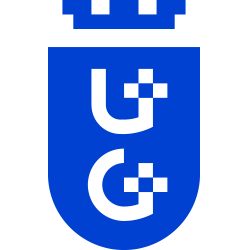
ul. Bażyńskiego 1a 80-952 Gdańsk
Polska
ISNI ID: 0000 0001 2370 4076
GRID ID: grid.8585.0
Magdalena Bartniczak
Niepełnosprawność, Nr 32 (2018), 2018, s. 127-142
https://doi.org/10.4467/25439561.NP.18.063.10463Kwestie podjęte w artykule stanowią próbę zmiany perspektywy spojrzenia na kategorię kompetencji narracyjnej podyktowaną współczesną optyką teleologiczną pedagogiki specjalnej, w której autonomia zajmuje centralne miejsce. Zmiana ta miałaby polegać głównie na odejściu od wymagań formalnych narracji wynikających z konieczności zachowania konkretnej struktury na rzecz różnorodności i zindywidualizowania sposobu opowiadania. Do tej pory w badaniach dotyczących tej kompetencji akcent kładziono na tzw. gramatykę narracyjną i zakładano, że zachowanie odpowiedniej formy i struktury wypowiedzi będzie miernikiem skutecznej edukacji i pozwoli usprawnić komunikację interpersonalną. W kontekście pedagogiki specjalnej, było to myślenie prowadzone w duchu medycznego modelu niepełnosprawności, w którym usprawnianie osób niepełnosprawnych i niwelowanie ich deficytów na wzór tzw. normalności stawiano w centrum działań rehabilitacyjnych. „Nowe” rozumienie kompetencji narracyjnej przenosi nacisk na inny aspekt narracyjności – refleksyjność, która wiąże się z gotowością interpretowania zmiennej rzeczywistości, dostosowania rodzaju wypowiedzi do kontekstu i zindywidualizowania sposobu konstruowania narracji. Możliwość dokonania takiego przesunięcia jest argumentowana zmianami w postrzeganiu szeroko rozumianej narracji oraz paradygmatycznymi tendencjami w pedagogice specjalnej, zarówno w wymiarze teoretycznym, jak i praktycznym. W takim ujęciu kompetencji narracyjnej dostrzega się potencjał tworzenia podstawy do realizowania idei autonomii, która uznawana jest współcześnie za nadrzędny cel w działaniach rehabilitacyjnych z udziałem osób z niepełnosprawnościami.
Possible ways to include the narrative competence in relation to autonomy as a purpose in special pedagogy
The article is an attempt to change the perspective of looking at the concept of narrative competence, which consists mainly in departing from the formal requirements of narrative structure to the freedom of the variety narrative. Until now, in research on this concept, the emphasis was on the narrative grammar and it was assumed that maintaining the appropriate form and structure of speech would improve education and interpersonal communication. Referring to special pedagogy, it was thinking in the spirit of the medical model of disability, in which the improvement of disabled people and leveling their deficits on the model of the so-called normality was put in the center of rehabilitation activities. The “new” understanding of narrative competence transfers the emphasis to another aspect of narrative - reflexivity, which is associated with the readiness to interpret the variable of reality, adjusting the type of expression to the context and individualizing the way of constructing the narrative. The possibility of making such a shift is based on changes in the perception of broadly understood narratives and paradigmatic tendencies in special pedagogy, both in the theoretical and practical dimensions. In this perspective of narrative competence, the potential to create a basis for realizing the idea of autonomy which now is the very important purpose in rehabilitation of persons with disabilities.
Magdalena Bartniczak
Niepełnosprawność, Nr 25 (2017), 2017, s. 38-54
https://doi.org/10.4467/25439561.NP.17.002.8078Directions of scientific discourse change determining the way narratives of people with intellectual disabilities are viewed
The interest in narrating by people with intellectual disabilities could be considered in terms of particular changes: narrative turn in science, emerging of interpretive paradigm in social science research, social communication theory development and paradigmatic change in the way of thinking about disability, either in a theoretical or practical context. The presented paper aims at showing the possibility of application of biographical methods in research on people with intellectual disabilities as the avenue of their emancipation. This is a significant issue, due to the fact that this social group remains excluded from a biographical research. Anyway, all theoretical implications of a new concept of disability highlight the need to promote and increase their participation in culture, providing them with the opportunities to talking about themselves the ways they usually speak. All the more so, because the narrative is not currently treated narrowly, as a structure of expression, but rather broadly, as the basic way of understanding being a human.